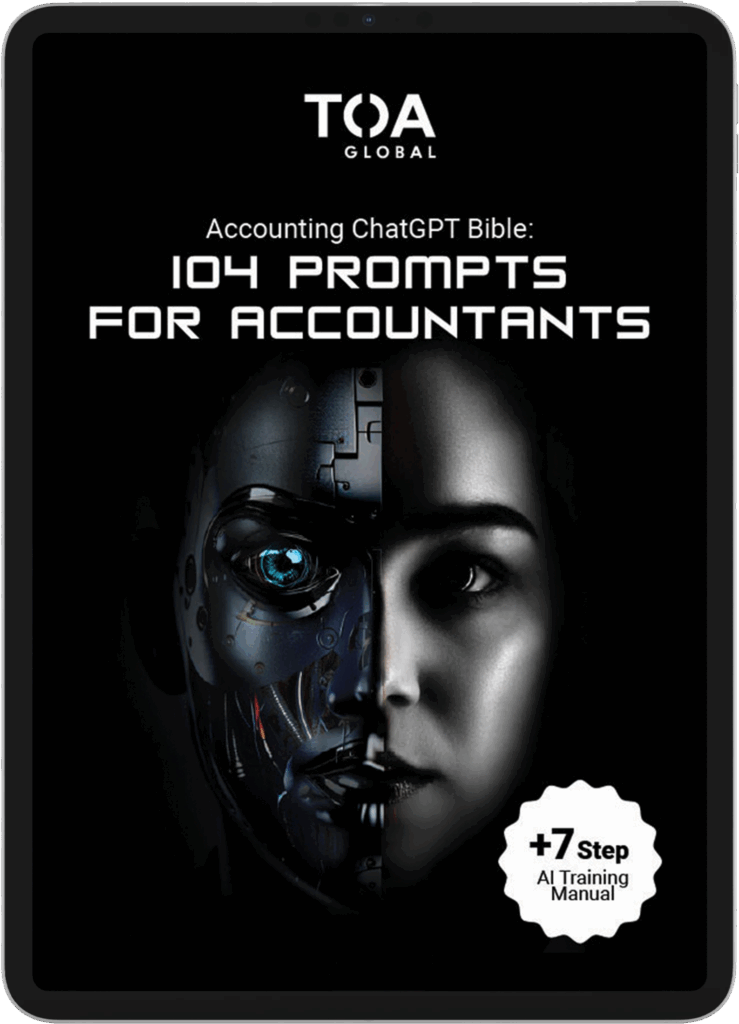Cloud based accounting has been around for a while now, but it’s only been getting attention fairly recently.
From startups and small-medium businesses all the way to industry heavyweights, everybody seems to use cloud technology nowadays!
Well, it’s not popular for nothing.
While some have fully embraced it, others are still in the process of navigating and integrating cloud technology into their business operations. If the latter sounds like you, this blog can help you accelerate your firm’s transition into cloud based accounting!
What is Cloud Based Accounting?
Cloud based accounting is a modern approach to hosting your accounting system. Rather than maintaining physical or on-premises servers, cloud based accounting stores your firm’s and clients’ data in remote servers or “the cloud,” which you can access via the internet or an app.
And since everything is app or web-based, any changes and updates on your data reflect in real time, making collaboration so much more seamless. For security purposes, you can only access your data using your unique login credentials.
On top of that, cloud technology eliminates the need for physical servers, saving you thousands on infrastructure, installation, and maintenance costs.
What is Cloud Based Accounting Software?
Cloud based accounting software is a type of accounting software hosted in “the cloud”, which are servers locked in offsite locations, and can be accessed via the internet.
Cloud accounting software allows users to manage and perform accounting tasks flexibly, like financial reporting, invoicing, payroll, expense tracking, and sometimes even advanced features like inventory management and tax preparation.
Some of the most popular cloud based accounting software right now include Xero, QuickBooks, and FreshBooks.
Traditional Accounting Software vs Cloud Accounting Software
You’re probably already familiar with most of these, but let’s go ahead and take a closer look at how cloud based accounting software stacks up against traditional accounting software.
Cloud Accounting Software
automatic synchronization
real-time collaboration
minimally restricted, secure accessibility
integrable with other applications
mostly subscription-based pricing
maintenance costs and data security boost courtesy of provider
flexible for company size/scale
Traditional Accounting Software
manual inputting
network-based collaboration
limited accessibility, enhanced security
limited integration with other applications
mostly upfront pricing
maintenance costs and data security boost courtesy of firms
limited flexibility for company size/scale
Cloud Based Accounting System: What's in It for You?
Cloud accounting software offers an elevated level of accuracy, security, and efficiency.
While traditional accounting software has likely given you time-tested safety, familiarity, and reliability, cloud accounting software offers the same level of benefits, and more.
Here are just a few:
1. It gives you peace of mind (on where you keep your data)
We put this first because we understand the skepticism surrounding cloud security.
With cloud accounting, your firm’s most sensitive financial information is not only safe from data thieves, but also from natural disasters. Compared to traditional accounting software, you increase your data security by leveraging offsite physical servers.
However, some people may still have the wrong notion that giving up traditional systems also means losing accessibility and control over your practice’s data.
As a matter of fact, you may think that enhanced accessibility leaves room for hackers to spy on, steal, extort, and disrupt the business.
But that actually isn’t the case. If anything, cloud technology enhances data access while bolstering security with standard software safety protocols like data encryption and multifactor authentication.
On top of that, developing habits like locking your devices, conducting regular security audits, and backing up your data can help prevent data breaches as well.
When you follow a strict data security protocol for your cloud accounting system, you can:
- Identify and rule out unauthorized persons or systems trying to access your data
- Include only a trusted few to input, make changes, and/or take out data as needed
- Add extra layers of protection to your most sensitive financial information
- Build and maintain trust from your clients, boosting your client relationships in turn
This brings us to our second point.
2. You're not chained to your desk anymore
For most work setups, it’s all about gluing your eyes to your screen all day. You barely leave your office chair, and when you do, it’s usually just for a bio break.
This is why real time data access is a major selling point for cloud based accounting — it elevates convenience unlike any other system!
The ease of access is the defining feature of cloud technology. Users can log on at any time and from any device as long as they have internet connection. It allows leaders and team members to accomplish office tasks from anywhere, even when they’re not physically together in the office.
Cloud computing also allows for more synchronization and collaboration.
After all, being in sync when finishing a project reduces the pushbacks in your pipeline.
Enhanced collaboration means more time and space for throwing ideas on the table, boosting productivity in brainstorming sessions, and therefore leading to better work outcomes.
3. It helps minimize human error
Accuracy is the essence of accounting.
We’re accounting for transactions – including the questions that we might have about them.
- Do the current records we have match the entries in the general ledger?
- Are there are any additions or subtractions in our records that have slipped through the cracks?
- How do we ensure that all recorded transactions took place at all?
We must leave no room for errors.
However, most older accounting practices usually entail handwritten computations, manual data entry, and a whole lot of paper trail.
Human error is inevitable, and these lapses can turn into sticky time sinks and bottlenecks — so much so that this oversight is considered part of general accounting processes. However, this shouldn’t be the case, especially when we can make better choices.
More than being notoriously hard to spot (and annoying to rectify one-by-one), entry errors can be quite costly.
Overlooking a wrong entry could mean dealing with possible million-dollar lawsuits, which can be prevented with a high-quality cloud accounting system.
With cloud accounting, human error — and the major implications that come with it — is significantly minimized.
4. You get time to do other stuff
Racing against time is pretty common in accounting.
You have daily, weekly, monthly, and yearly deadlines to beat.
You have piles of taxes to file, records to reconcile, and statements to report.
But with cloud accounting software, the machines do your routine tasks for you!
This means that you leave behind the tedious work that comes with accounting tasks like data entry, invoicing, and payroll processing, and entrust these in the hands of your ever-reliable accounting software.
Simply put, cloud solutions reduce the time spent on manual processes and allow you to spend more time on other things, like your business strategy, your financial forecasts, or even things outside of work that you find pleasurable.
You can use that extra time for strategizing, planning, or reading up on what to look out for in the industry.
5. It's pretty affordable
This is what seals the deal.
Most people think that if your cloud accounting software of choice comes with such robust features, it must also come with a hefty price tag.
That’s not the case at all!
Cloud based accounting software is a pretty affordable option, letting accounting firms get only what they need, usually via a monthly subscription.
This is because cloud accounting software can be a type of SaaS (software as a service). This means that users can access, store, and modify data from the cloud as needed, rather than installing and managing software on their own devices.
Should your firm scale up or down, you have spending control on which features to get with your cloud accounting software, like storage space or cloud users.
The best part is while your cloud provider accommodates your business growth, it doesn’t really break the bank.
Should All Firms Adopt Cloud Based Accounting?
As we’ve rounded up what cloud accounting software (or cloud technology in general) can bring to your practice, you can better weigh whether to get one or not.
Our advice? Go with whatever gives you less bottlenecks in your pipeline, faster turnaround time for tasks, and overall higher-quality outputs.
But should you decide to integrate a cloud provider into your existing accounting system, we have here a quick guide to the different types of cloud accounting providers.
The Best Cloud Based Software for Accounting Firms
Protection and Security
One of your best bets for cybersecurity is Practice Protect, offering robust security measures to shield the data stored in your cloud application service provider from possible.
But if you want to get twice as much of the benefit, Accountancy Insurance can give you both cybersecurity solutions and audit shield insurance — all in one program.
Payroll and Finance
If you’re having trouble managing and handling your finance and payroll tasks, then you can tap the likes of QuickFee and ADP to power up and rise above the competition. Say goodbye to manual data entry (and the possibility of expensive errors) and welcome automation into your finance and payroll process with these cloud accounting solutions.
Systems and Services
We can’t skip out on QuickBooks for systems and services, but there also options for specialized services like cross border payments, for which Corpay is a great option. Meanwhile, we also have LYD to help your firm with anything about legal certification for your documents.
The GAP is also a good option for those seeking top-tier accounting advisory. Lastly, Digital Rapport and Wolters Kluwer are some of the top solutions providers for your business’ compliance and financial reporting needs.
Beyond the Hype: What Your Firm Really Needs
Cloud accounting solutions are a great addition to your practice, but you need a longer-term, more sustainable solution for getting the best team players on board.
Without a superstar team, you won’t get the most out of your cloud provider — no matter how innovative or technologically advanced it is.
Whether or not your firm integrates cloud technology into its current system, what’s much more helpful (or dare we say, integral) to accounting firms globally are talent solutions providers.
Firms around the world can scale up or down. Your budget can get boosted or cut. Sometimes, the season is slow and tame. Most times, it’s high pressure (hello, tax season!)
You need an all-encompassing solution that can accommodate all of these.
The Long-term Solution Your Firm Needs
It doesn’t matter whether you’re taking the traditional route or jumping on the cloud technology bandwagon.
Like most accounting firms around the world, yours can use an extra pair of hands that can lift the burden of routine tasks from your daily to-dos, rewrite your stressful lows into record highs, and shape your firm into the accounting powerhouse it has all the potential to be — all at once.
Bet we got you curious!
Want to know more about this strategy? Join the 1,190+ practices that have been transformed by this solution and get started here.



















